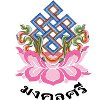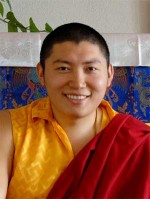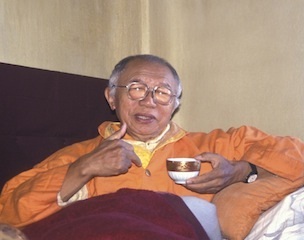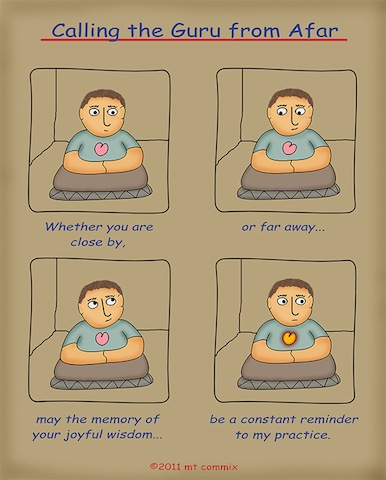Padmasambhava words – Phakchok Rinpoche message in January 2013 สารจากท่าน พักชก ริมโปเช มกราคม 2556
| Dear Friends Near and Far,
I hope you have all been happy and healthy. I have been well and at the moment at the Nagi Gonpa Hermitage performing the Ngakso Drupchen (Ocean of Amrita), a vajrayana mending and purification puja.
From the hagiography, The Wishfulfilling Tree, Padmasambhava himself says, “People of the future who have not met me, read and see my story”. It is said that merely hearing the name Padmasambhava brings immense blessing.
On this last Guru Rinpoche day of the Water Dragon Year of 2139 and with an understanding of these words of Padmasambhava to be a prophecy, I bring to you all with much joy the news of the unfolding and unfurling of the story of The Lotus Born into a pictorial depiction of moving images.
Neten Chokling Rinpoche, one of the incarnations of the Great Treasure revealer; Terchen Chokgyur Lingpa is once again coming out with a true gem and this time none other than the story of the Lotus Born Guru. Rinpoche has previously made a film on the life of Milarepa and Brilliant Moon: Glimpses of Dilgo Khyentse Rinpoche.
Glimpses into scenes from the life story of Padmasambhava– the Enlightened Hero of our time.
Ext. Samye courtyard, Tibet
Under the shade of the peacock feather parasols, the priest Padmasambhava, the abbot Shantarakshita and the king Trisong Duetsen, circumambulate the temple. Suddenly a shower of arura fruit falls from the skies. The king’s attendant holding the peacock-feathered parasol exclaims, holding an arura fruit in his hand.
UMBRELLA ATTENDANT Your Majesty, it is an arura! This medicinal fruit is obtained only in India.
The king looks extremely joyous.
Int. King’s chamber, Samye
PADMASAMBHAVA Since the temple is now established the Abbot and I ask your permission to leave for India.
Trisong Duetsen is taken aback. The king clasps his hands at his chest and sorrowfully speaks to the two masters.
TRISONG DUETSEN Compassionate Masters, please listen. Tibet is a land of fiends where the sound of the holy Dharma is not even heard. Although your kindness has already been great I humbly supplicate that you postpone such an exit!
The King sheds tears. The two foreign masters feel compassion for the Tibetan King.
PADMASAMBHAVA Your Majesty, the three of us have come together in Tibet through the ripening of karma from the aspirations of our three lives. Since we, the three brothers, again have this connection as we had in past lives, I shall not turn back your request.
ABBOT Very good, I will do likewise.
Upper cave at Chimpu Hermitage
A young girl of 16 sits on the floor of the hermitage facing Padmasambhava who is sitting on a cushioned platform.
PADMASAMBHAVA Tsogyal, when practicing the Dharma, you must first tame your own mind.
YESHE TSOGYAL What does that mean?
PADMASAMBHAVA You must extinguish the scorching flames of anger, cross the river of desire, crumble the mountain of pride, overcome the storm of envy and light the torch of discriminating knowledge in the darkness of ignorance.
Yeshe Tsogyal looks to Padmasambhava with full attention.
PADMASAMBHAVA (CONT’D) These five poisons of anger, desire, pride, envy and delusion will ruin your being in samsara if you uninhibitedly indulge in them. Do not let them run wild. There is a danger in that.
Yeshe Tsogyal nods her head.
Int. Upper cave at Chimpu Hermitage
Yeshe Tsogyal is writing down something on a yellow parchment.
YESHE TSOGYAL I, Tsogyal, have been serving the master for a while now. On different occasions, he gave advice on Dharma practice that I persistently retained in my perfect recall, collected, and wrote down for the sake of future generations. This is committed to writing in the Upper Cave at Chimpu on the twenty fifth day of the second month of fall in the Year of the Sow.
She rolls the small parchment and puts it in a small leather box. She exits her cave hermitage with it.
Standing in front of a big odd shaped boulder, Yeshe Tsogyal presses the small leather box onto the rock surface. After a gentle push the small box gently sinks into the hard surface of the boulder and disappears from sight.
PADMASAMBHAVA (O.S.) Since they are not meant to be spread at the present time conceal them as a precious treasure.
Outside Samye Gate An old woman waits by the road near the gate of Samye. Padmasambhava passes through the gate. On seeing him, she bows down and joins her palms before him.
OLD WOMAN Great Master, you are about to leave for your hermitage and I am about to die. Please give an instruction that requires little hardship, that is simple to grasp, easy to apply and very effective.
PADMASAMBHAVA Old lady, who are you?
OLD WOMAN I am the one who has been sending the bowl of curd.
Padmasambhava acknowledges her kindness with a smile.
PADMASAMBHAVA Old lady, take the cross-legged position and keep your body upright.
The old woman sits down as instructed.
PADMASAMBHAVA (CONT’D) For a short while, simply remain with totally relaxed attention.
Gungthang Pass, Tibet
YESHE TSOGYAL (Despondently) The sun is setting in our hearts. Since you are leaving for Chamara we are left without a guide. From the king to the pauper we all rely on you. What will we do after you leave. What will happen to us? Who do we turn to for advice?
Padmasambhava looks to Yeshe Tsogyal.
PADMASAMBHAVA For the moment you should not worry because the Dharma is like the sun at noon in Tibet. Therefore it makes no difference whether I am here or not.
He looks down to the Tibetans. Some of the older ones cry.
PADMASAMBHAVA To those who have faith in me, I have never departed – I sleep on the threshold of their homes. From those with erring views I am concealed, though yet I stand before them.
Through this film, may the wisdom and compassion of Padmasambhava’s life act as a soothing balm to quell the miseries afflicted out of ignorance.
Sarva Mangalam,
Phakchok Rinpoche
|

 Dear Friends Near and Far:
Dear Friends Near and Far: Dear Friends Near and Far:I hope you have all been happy and healthy. I am in Guadalajara, Mexico preparing for todays Guru Rinpoche Day’s feast offering. I am going to keep each and everyone of you in my mind during the feast offering.
Dear Friends Near and Far:I hope you have all been happy and healthy. I am in Guadalajara, Mexico preparing for todays Guru Rinpoche Day’s feast offering. I am going to keep each and everyone of you in my mind during the feast offering.
